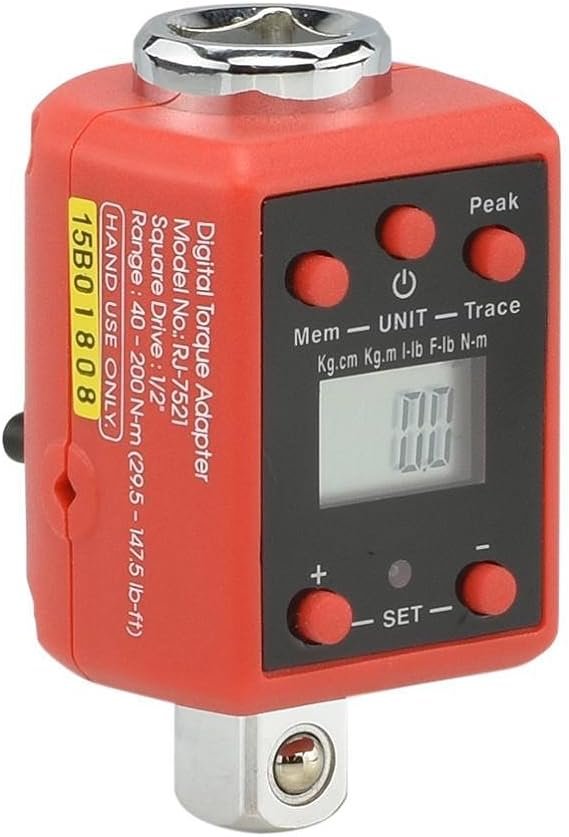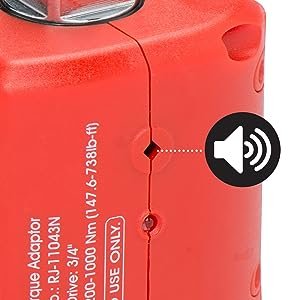Whether you’re fixing your car, assembling furniture, or working on machinery, ensuring that every bolt is tightened to the correct torque specification is crucial for safety and functionality. This is where torque wrenches and torque adapters come into play, two indispensable tools that serve similar yet distinct purposes. Let’s see the differences between these tools and explore which one might be the right choice for your needs.
Tried and Trued Torque Wrench:
A torque wrench is a specially designed tool made to apply a specific amount of torque to a fastener, such as a nut or bolt. It typically consists of a handle, a calibrated gauge, and a mechanism that allows torque to be applied with precision. Torque wrenches come in various types, including beam, click, and digital, each offering its own advantages depending on the application. (More on these in another article)
- Beam Torque Wrenches: These are the simplest and most affordable type of torque wrenches. They feature a calibrated scale and a pointer that indicates the amount of torque being applied. While accurate, they require careful reading and interpretation by the user.
- Click Torque Wrenches: Click torque wrenches are more popular due to their ease of use and accuracy. They emit a click sound when the preset torque value is reached, alerting the user to stop applying force. This audible signal eliminates the need for guesswork and ensures consistent tightening.
- Digital Torque Wrenches: Modern advancements have led to the development of digital torque wrenches, which provide precise torque readings on a digital display. These wrenches often offer additional features such as memory storage, unit conversion, and programmable settings, making them ideal for professional mechanics and engineers who require utmost accuracy.
Exploring Torque Adapters:
The digital torque adapter basically converts any ratchet wrench or breaker bar into a precision torque wrench with a digital gauge and can also serve as an accurate calibration device for existing digital and analog torque wrenches. Most will have a torque range of between 30-150 lb-ft along with a digital screen.
NEIKO Digital Torque Adapter

Easy to read with large number format and bright screen.

Audible sound alert to quickly know when setting is reached.
Key Features:
- Torque Wrench Conversion: Converts and ratchet wrench into a precision torque wrench.
- Metric/SAE & Bi-Directional: This digital adapter can calculate torque in both Metric and SAE units. (Ft-Lb, N-m and kg-m) and bolsters a 1/2 inch drive with socket drive and can measure in both directions, clockwise and counter-clockwise.
- Peak and Trace Mode: Peak mode indicates when a specific level of torque is reached, and Trace mode actively shows how much torque is being applied on the display.
- Noise Alert at Torque Setting: The audible confirmation is accompanied by a 3 LED light indicator to give you a progressive audio notification when reaching specific torque settings.
Choosing the Right Tool for the Job:
When it comes to deciding between a torque wrench and a torque adapter, several factors come into play:
- Application: Consider the specific tasks you’ll be performing. If you need to precisely tighten fasteners to a specific torque value, a torque wrench is essential. On the other hand, if you require additional reach or flexibility, a torque adapter may be the better choice.
- Accuracy Requirements: If your work demands precise torque control, especially in critical applications such as automotive repairs or aerospace engineering, investing in a high-quality torque wrench with calibration certification is paramount. However, if you’re working on less critical tasks where exact torque values are not as crucial, a torque adapter may suffice.
- Budget and Versatility: Torque wrenches can be more expensive than torque adapters, especially digital models with advanced features. If you’re on a tight budget or need a tool that offers versatility for various applications, a torque adapter might be the more cost-effective option.
In conclusion, both torque wrenches and torque adapters are indispensable tools in any mechanic or DIY enthusiast’s arsenal. While torque wrenches provide precise torque control for critical applications, torque adapters offer flexibility and extended reach when needed. By understanding the differences between these tools and assessing your specific requirements, you can make an informed decision and ensure that every fastener is tightened to perfection.




